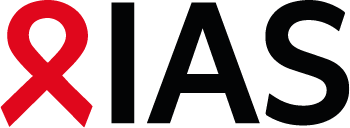Share Abstract
Impact of US-funding suspensions on HIV response in the Latin America and Caribbean region
Abstract Content:
BACKGROUND: The Latin America & Caribbean region (LAC) has historically had a concentrated and controlled HIV epidemic, leading to a lower prioritization of the region in global HIV response and funding. Only 9 countries had explicit HIV pre-exposure prophylaxis (PrEP) policies as of 2024. Subsequently, the region has observed a recent increase in HIV incidence. Nonetheless, the majority of national HIV programs rely on donor funding to some extent, and PrEP was only available through foreign-funded programs in several countries.
METHODS: We distributed an online survey, from February 18'March 14, 2025, available in English, Spanish, French, and Haitian Creole, to HIV service organizations in the LAC region. 40 organizations from 13 countries provided data for this analysis.
RESULTS: 56% of respondents reported receipt of US funding in the last year; of those, 87% had funds suspended. The median annual affected budget was USD $140,000 (IQR: $87,500-$343,727), representing a median 46% of the organizations' annual budgets (IQR: 25'85), reaching 100% in some cases. The programs most frequently affected by the funding freeze were sexual prevention programs, HIV testing services, psychosocial support, social services, gender-based violence prevention and clinical care, and HIV PrEP (in countries that offered PrEP). Affected programs served a median of 193 adults (IQR: 69'400) and 0 children (IQR: 0'10) living with HIV per organization, totaling 16,179 adults and 1,270 children. Additionally, they served a median of 2,500 adults (IQR: 150'5,203) and 5 children (IQR: 0'50) without HIV or with unknown HIV status per organization, totaling 117,513 adults and 21,202 children. In total, 156,164 beneficiaries were estimated to lose access to HIV services provided by these organizations alone as a result of the funding freezes.
CONCLUSIONS: Suspensions of US foreign aid have led to drastic pauses and terminations of critical HIV prevention and care programs, though our survey likely underestimates the scale of the impact. While the LAC region may have higher autonomy from foreign support and less reliance on US funding than other regions, progress on HIV prevention and control in the region is threatened.
METHODS: We distributed an online survey, from February 18'March 14, 2025, available in English, Spanish, French, and Haitian Creole, to HIV service organizations in the LAC region. 40 organizations from 13 countries provided data for this analysis.
RESULTS: 56% of respondents reported receipt of US funding in the last year; of those, 87% had funds suspended. The median annual affected budget was USD $140,000 (IQR: $87,500-$343,727), representing a median 46% of the organizations' annual budgets (IQR: 25'85), reaching 100% in some cases. The programs most frequently affected by the funding freeze were sexual prevention programs, HIV testing services, psychosocial support, social services, gender-based violence prevention and clinical care, and HIV PrEP (in countries that offered PrEP). Affected programs served a median of 193 adults (IQR: 69'400) and 0 children (IQR: 0'10) living with HIV per organization, totaling 16,179 adults and 1,270 children. Additionally, they served a median of 2,500 adults (IQR: 150'5,203) and 5 children (IQR: 0'50) without HIV or with unknown HIV status per organization, totaling 117,513 adults and 21,202 children. In total, 156,164 beneficiaries were estimated to lose access to HIV services provided by these organizations alone as a result of the funding freezes.
CONCLUSIONS: Suspensions of US foreign aid have led to drastic pauses and terminations of critical HIV prevention and care programs, though our survey likely underestimates the scale of the impact. While the LAC region may have higher autonomy from foreign support and less reliance on US funding than other regions, progress on HIV prevention and control in the region is threatened.
